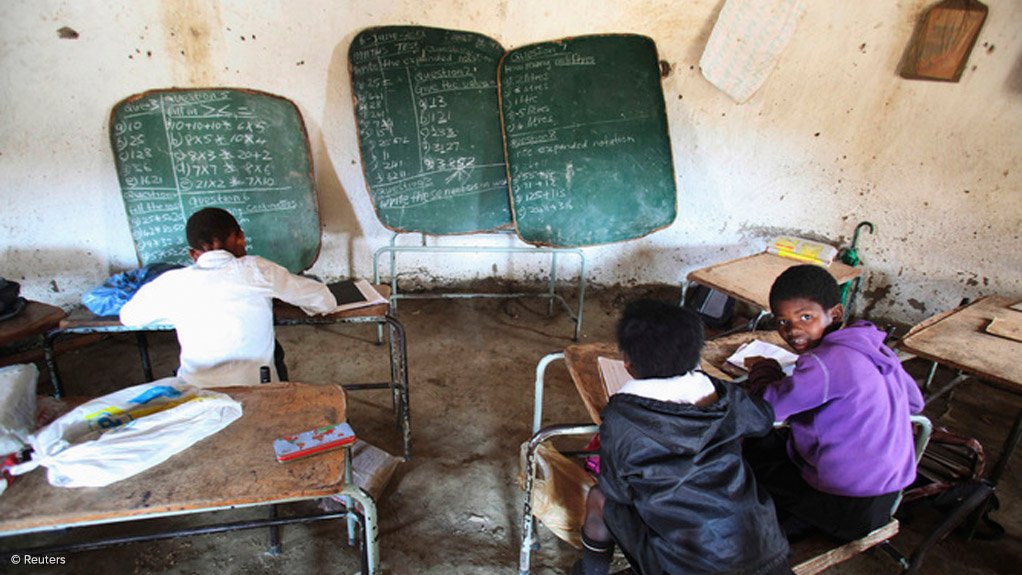If one were to measure an education system’s strength purely on access, South Africa would be a schooling success story. Since the end of apartheid in 1994 there has been a dramatic increase in the number of children attending primary and secondary school. University enrolments are also up.
Government has used policy to forcefully change patterns of school access that were highly racialised during apartheid. It has prioritised teacher development and is trying to create norms and standards for school infrastructure. It should be commended for this work.
But for all of this progress, educational inequality remains deeply entrenched. Education is a crucial mechanism for helping children to climb out of poverty - but poor children bear the brunt of bad teaching, disorganised or malicious administration and a lack of everything from desks and chairs to toilets, libraries and science labs.
French economist Thomas Pikkety, who on October 3 delivered the 13th Nelson Mandela Annual Lecture in Johannesburg, has written extensively about inequality in education. What is entrenching inequality in a system that appears committed to equalising access to education and reversing inequalities from the past? Can we disrupt entrenched educational inequality?
Enough short term thinking
Historically, spending on schooling was racially skewed and heavily favoured white children. This has been changed since 1994 and spending has become infinitely more equitable.
Some may suggest that this change in spending should lead to an equalisation of outcomes in terms of retention and success rates. But a look at the country’s annual matric results - the final performance of Grade 12 students as they complete their secondary schooling - shows this is simply not so. Inequality can’t be bought out of existence.
If schools don’t have appropriate infrastructure or learning materials, pupils are being poorly taught and are living in economically depressed communities, a single, simple spend won’t make much difference. They will perform badly in their matric year.
It is time we took a long term view of education and schooling: one that looks at these things across their lifespan rather than just at matric as an exit point from schooling. It is about reframing the value of education to include its social, political and cultural purpose.
We know about returns on investment in schooling, and what is not emphasised is the value that education can play in teaching young people to participate actively in a young democracy. Such education goes beyond the teaching of maths and science. It is about educating a citizenry for engaging in a diverse society and about building solidarity across race, class and gender in the service of social cohesion.
There is no shared conceptualisation of educational problems because there are such varied ideas about what is causing them and how they can be solved.
Building blocks
So where do we start? Firstly, good quality early childhood education may be a way to break the cycle of inequality. Research tells us that children with strong school foundations have a much greater chance of later academic success and, ultimately, will earn a better income than their peers.
These young children’s teachers must be particularly well equipped to teach numeracy and literacy. Our research shows that a foundation in these crucial subjects will improve academic performance in all areas across their school careers.
This early education must be coupled with access to health care and attentive, involved parenting.
Lifelong learning
The work cannot stop at primary or secondary school. Changing the post school sector is a crucial way to disrupt inequality. A diversified post school sector will offer programmes that can be matched to students' interests, skills and the needs of the labour market.
Young people need more choices. University is viewed by too many South Africans as the only option to equip them for a successful, financially secure future. There are other options, such as Technical Vocational Education and Training colleges, but these have a reputation for bad quality.
This view is enforced by a lack of properly qualified staff for these colleges; a lack of both infrastructure and teaching resources; weak student financial aid and support and poor institutional governance. These issues must be tackled, because these colleges are a valuable resource for both students and the economy.
More attention must also be paid to adult learning and education. Many South Africans have already missed out on the building blocks in childhood, adolescence or as young tertiary students.
There’s more to it than education
All of these measures are important - but ultimately, undermining inequality involves recognising that education is just one part of the larger tapestry. All of the ills that society faces land on the doorstep of education and schooling, setting schools up for failure.
The role of big business in driving inequality cannot be ignored. Nor can that of government when it allocates funds inadequately to schools, universities and colleges. These funding regimes impact students from poor households most because they depend on government funding to access education at all levels.
Academic and author John Marsh puts it best in his book Class Dismissed:
So yes, by all means fix schools, reward good teachers … end the soft bigotry of low expectations. The problem, however, is when our notion of social and economic justice starts and stops with education (…) This is dangerous talk – dangerous because by wrong assignment of causes, it persuades that the cure is possible .
Written by Ruksana Osman, Professor and Dean of Humanities, University of the Witwatersrand
This article was originally published on The Conversation. Read the original article.
EMAIL THIS ARTICLE SAVE THIS ARTICLE
To subscribe email subscriptions@creamermedia.co.za or click here
To advertise email advertising@creamermedia.co.za or click here











